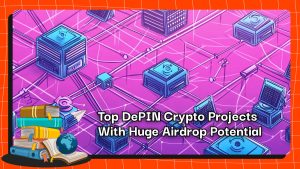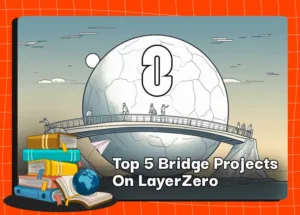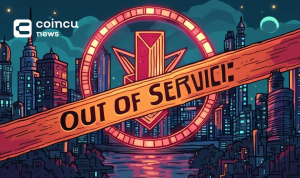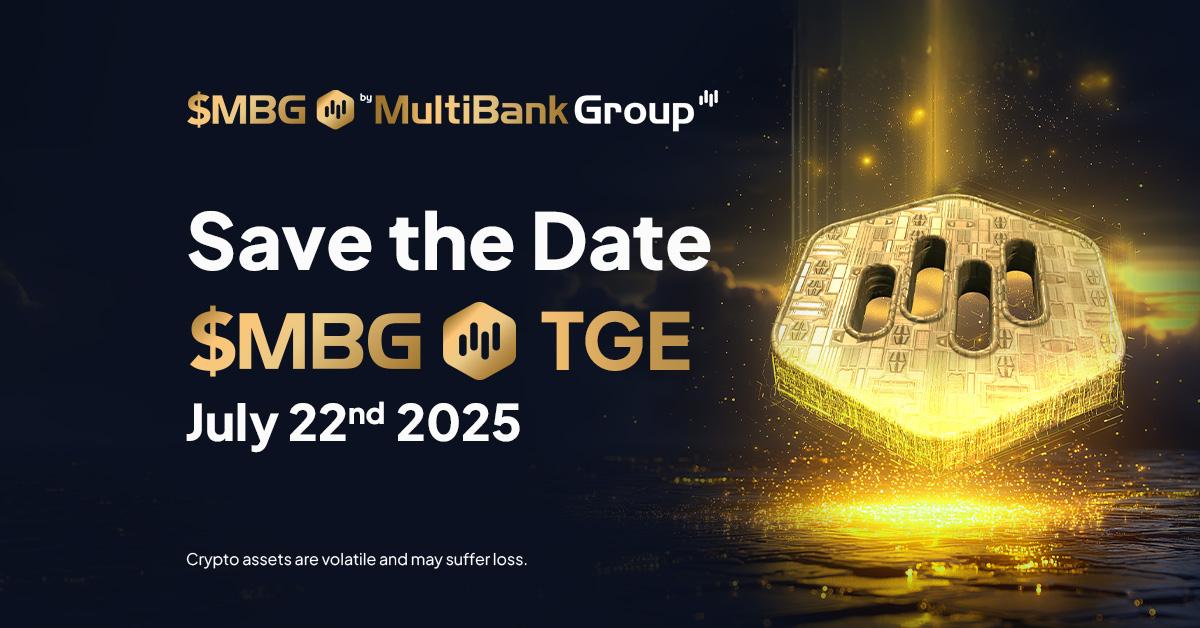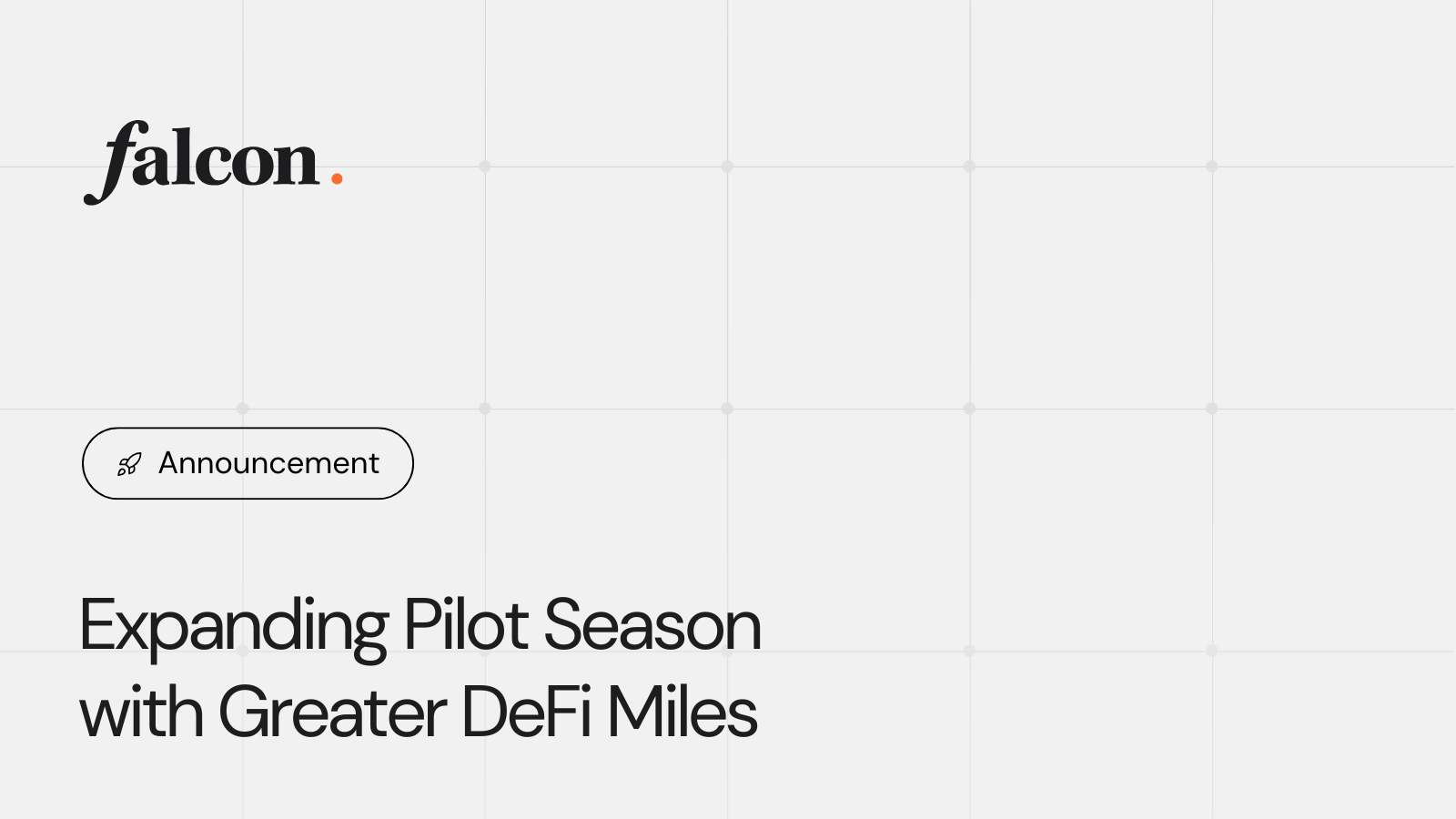In 2022, the emergence of the interoperability protocol LayerZero will make the concept of Omnichain popular. From a single public chain to the emergence of cross-chain bridges, and then from multiple chains to the birth of the whole chain, the application of blockchain in the field of encryption and Web3 is bound to advance along the way of continuous expansion and interconnection.
Under the premise of ensuring security, lower communication costs and faster communication speeds are the needs of the blockchain field at this stage, and they are also continuous needs.
In this article, the veDAO Research Institute will start with the analysis of zkOmnichain to gain a deeper understanding of Omnichain. Taking LayerZero as an example, explain why zkOmnichain, the “New Holy Grail of Web3”, deserves attention.
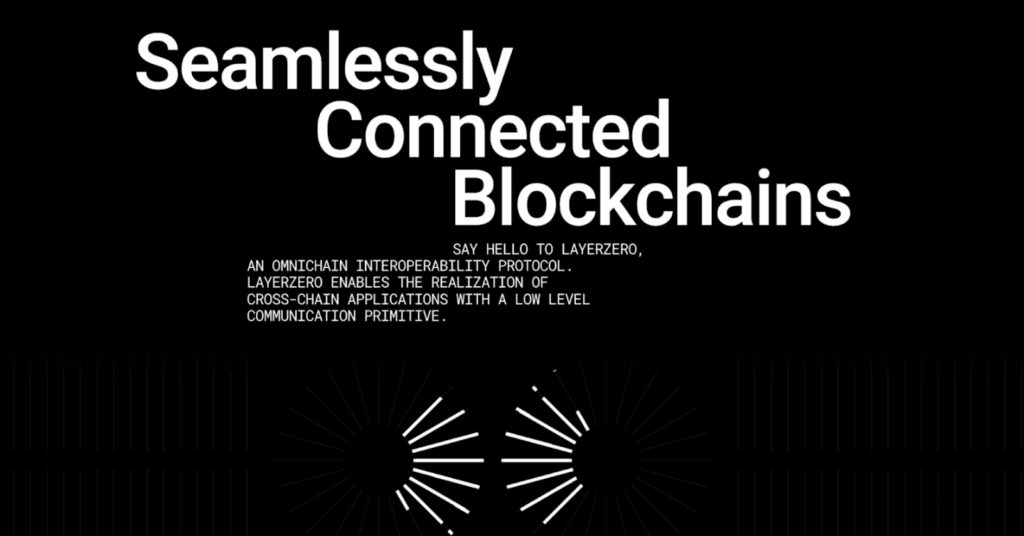
With the ecosystem development of L1 and L2 layers of chains, compared with the previous Ethereum, which was the only one, the public began to accept the state of coexistence of multiple chains; but each blockchain is essentially an independent custom ledger, different It is difficult to exchange data between chains, and it has become a data island.
To make full use of an application, developers and users must allocate resources and time among different chains, which is backward compared to Web2, so cross-chain interconnection is increasingly becoming an important proposition of Web3.
At present, there are three common ways to achieve full-chain coverage and cross-chain communication:
1. Interoperate with the initial chain and target chain through an intermediate chain of an intermediate consensus protocol, and verify and forward messages between different chains;
2. Through Optimistic mechanism to complete interoperability with other chains;
3. Interoperate with other chains through zkOmnichain, a full-chain interoperability protocol based on zero-knowledge proof.
The innovation of Omnichain lies in the use of ultralight nodes, which do not transmit information themselves but are only responsible for docking, and the work of verifying and transmitting information is handed over to external oracles and repeaters.
Therefore, Each chain only needs to deploy an ultra-light node containing less information, and it can communicate with any other chains that also have nodes. The chains here include L1, L2, non-EVM, and EVM. Layer0 network above.
LayerZero acts as a messaging layer designed to make it easy for smart contracts to communicate across many blockchains, or rather any blockchain. At the same time, Omnichain is because of its potential to make NFT, and related projects go full-chain and exist in a broader way, a technology that may indeed prove to be a key catalyst to bring NFT activity to other chains.
What is zkOmnichain?
The technical principle of zkOmnichain is developed based on LayerZero’s technology stack, which uses a series of technical means to achieve efficient privacy protection and scalability.
Specifically, zkOmnichain uses zk-SNARK proof technology to achieve privacy protection, uses MPC technology to achieve multi-party computing, and uses optimized smart contracts to achieve efficient computing.
zk-SNARK is a zero-knowledge proof technology, which can prove the correctness of certain facts without revealing any information, and has the characteristics of high efficiency and verifiability, so it is widely used in the fields of privacy protection and data verification.
The comprehensive application of these technical means enables zkOmnichain to provide high-performance solutions without loss of privacy, security and scalability and provides strong support for different blockchains and applications.
By combining the low cost of a third-party verification network and the high security of light nodes, the ultra-light nodes proposed by Layerzero provide high security at a low cost. This cost-effective solution will save a lot of learning and operating costs for developers, and these will greatly reduce users’ usage costs, giving cross-chain applications built on LayerZero a strong cost advantage.
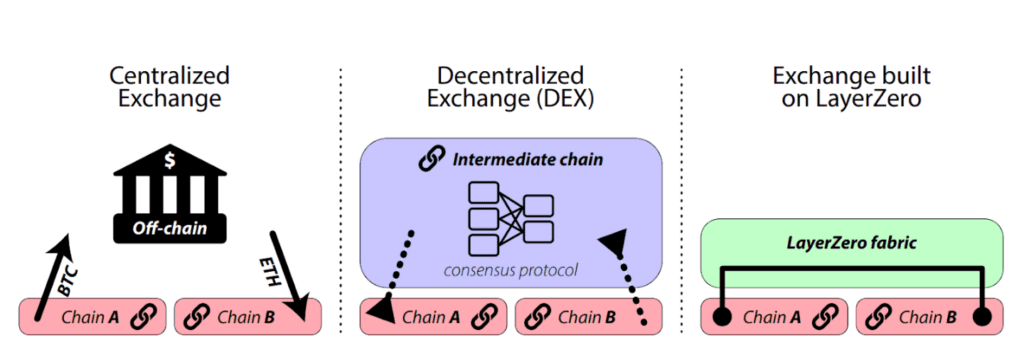
The diagram above shows the architectural differences between a centralized exchange, a decentralized exchange, and a cross-chain bridge built using LayerZero as its underlying communication primitive.
As shown in the left and middle modes in the figure, the traditional cross-chain bridge realizes pseudo-communication by monitoring the two chains under the chain instead of the real two chains generating information transmission; LayerZero is directly on the two chains. The chain deploys its own nodes, and these nodes complete the communication between multiple chains.
Asset cross-chain bridges cannot simultaneously meet the three conditions of “ensuring immediate settlement,” “asset originality,” and “unified liquidity.” But Stargate, an asset cross-chain bridge based on Layerzero, uses Delta Algorithm and soft partition mechanism to break the impossible triangle. Liquidity providers enjoy better capital efficiency and scalability so that the same funds can be deployed more efficiently and bring higher returns, while users can enjoy safer and zero-slip at a lower cost Point assets cross-chain.
How does zkOmnichain realize the whole chain?
Architecture of LayerZero
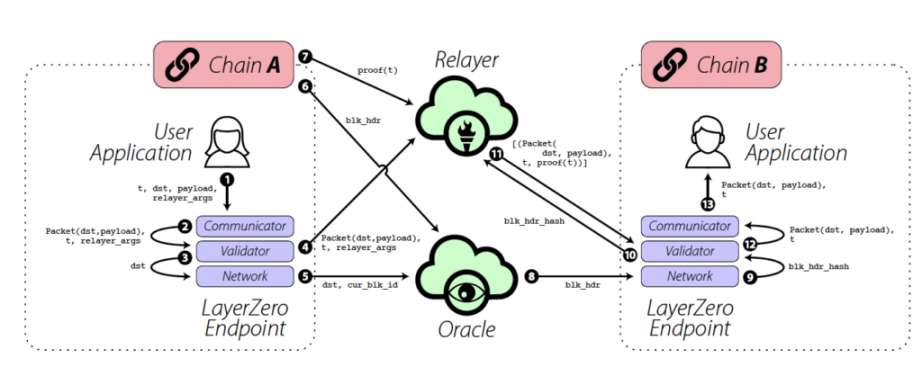
LayerZero consists of three core components: Endpoint, Oracle, and Relayer.
- Endpoint: Appears on the user side as User Application, which is responsible for direct interaction with users or applications. Endpoint can be understood as consisting of a series of smart contracts, one deployed on each chain. Endpoint specifically includes 3 modules – Communicator (communicator), Validator (validator), Network (network);
- Oracle: It belongs to the third-party oracle service, which is equivalent to an external component. It is independent of the LayerZero protocol, which currently uses Chainlink. The function of the oracle machine is to send the block header information to the target chain and then combine the Proof information of the Relayer to verify the validity of the transaction;
- Relayer: As a relay, it is responsible for obtaining and transmitting the Proof information of the specified transaction. At present, LayerZero is used to provide the Relayer service, and in the future, specific business parties can take up the role of Relayer; Relayer can earn most of the cross-chain fees.
To put it simply, LayerZero transmits information between LayerZero Endpoints on different chains through Oracle and Relayer, passes the block header through Oracle (the block header contains transaction information, message m, etc.), and Relayer passes transaction proof (Proof information), Authenticate each other for security.
Difference between zkOmnichain and zkRollup
When Ethereum is about to usher in the Shanghai upgrade, we can see the enthusiasm of the market for Ethereum and the considerable market share of Web3 brought about by the vitality of Ethereum. However, the trend of multiple chains coexisting and developing together is still a fact that cannot be ignored. veDAO Research Institute started from the difference between zkOmnichain and zkRollup to understand why the whole chain represented by zkOmnichain has importance and market prospects.
Both zkOmnichain and zkRollup are privacy protection solutions based on zero-knowledge-proof technology. What they have in common is that they can realize efficient, scalable, privacy-safe blockchain applications. However, they differ in some key technologies and application scenarios, mainly in the following aspects:
(1) The data structure is different: zkRollup belongs to Layer 2, which packs transaction data into blocks and then submits them to the main network of the blockchain for verification and recording. On the other hand, zkOmnichain uses a multi-layer structure to achieve more complex application scenarios.
(2) Different application scenarios: zkRollup is suitable for simple transaction scenarios, such as Token transfer, decentralized exchanges, etc. And zkOmnichain can be applied to more complex scenarios, such as cross-chain transactions, financial derivatives, etc.
(3) Different verification methods: zkRollup uses a batch verification method to package multiple transactions together for verification, thereby improving the processing speed of transactions. On the other hand, zkOmnichain adopts multi-party computing technology, which can realize more complex verification and calculation.
(4) Different compatibility: zkRollup is based on Ethereum’s EVM implementation, so it can be compatible with smart contracts on Ethereum. And zkOmnichain is an independent blockchain solution that needs to build smart contracts by itself.
To put it simply, zkOmnichain is more scalable, providing core support for multi-chain interaction from the underlying logic, allowing Web3 to connect from the islands of each chain to a network.
Advantages and disadvantages of zkOmnichain
Overall, the advantages and disadvantages of zkOmnichain are as follows:
Advantage:
(1) High privacy and security: zkOmnichain adopts zero-knowledge proof technology, which can realize the privacy protection of transactions and prevent information leakage and data tampering.
(2) Good scalability: zkOmnichain adopts a multi-layer structure, which can realize more complex application scenarios. At the same time, it adopts optimized smart contracts and multi-party computing technology to improve transaction processing speed.
(3) Wide range of applications: zkOmnichain is applicable to different blockchains and application scenarios, and can provide reliable solutions for enterprise supply chain management, cross-chain transactions, financial derivatives, etc.
Disadvantages:
(1) High technical threshold: zkOmnichain adopts zero-knowledge proof technology and multi-party computing technology, which has high requirements for technical personnel and needs to build independent, smart contracts.
(2) The network effect is weak: as an independent blockchain solution, zkOmnichain is still in its early stage. Although it is actively laying out the ecology, it needs to attract enough users and applications to form a good network effect.
Ecosystem development of LayerZero
In terms of ecological development, more than 700 smart contracts have been deployed on LayerZero during the testnet period. Representative projects in LayerZero’s current ecosystem include: Stargate and Liquidswap, representing cross-chain bridges, Radiant Capital, a full-chain lending protocol, and full-chain revenue. The aggregator Avault, the full-chain DEX Hashflow and SushiSwap, and the full-chain NFT project Gh0stly Gh0sts. Among them, the most popular ones are the full-chain cross-chain bridge Stargate and the full-chain NFT Gh0stly Gh0sts.
Stargate
Stargate is a LayerZero-based full-chain cross-chain bridge, mainly focusing on cross-chain assets of USDC, USDT and ETH, with unified liquidity and fast transaction finality. It is an ecosystem demonstration project based on the LayerZero full-chain interoperability protocol made by the founding team of LayerZero.
The function of Stargate is to realize the transfer of assets between multiple chains using a Pool-based cross-chain method for asset transfer. This cross-chain method is safer than asset mapping: what you receive is USDC, not asset mappings such as sETH or cETH. However, this cross-chain transaction method will be very dependent on the liquidity of the pool. If everyone wants to transfer assets to a chain, the transaction pool will be unanchored. In order to solve this problem, Stargate raises funds through initial issuance to provide transaction liquidity and uses high APR to attract capital inflows; in addition, in order to avoid high slippage, Stargate will also charge fees for those large transactions to make up for pool liquidity, Relatively friendly to retail investors.
Gh0stly Gh0sts
Launched on April 4, 2022, Gh0stly Gh0sts is the first LayerZero-based full-chain NFT set, and quickly attracted widespread market attention with its Free mint and Omnichain features. Gh0stly Gh0sts can mint and transfer on any of the 7 chains. The original chain (mint chain) and the current chain will affect the background color and border color of the NFT respectively, so it can be easily distinguished The past and present of this NFT.
Like many other NFTs, part of the value of Gh0stly Gh0sts stems from their ability to be integrated into future games/apps. However, the unique advantage of Gh0stly Gh0sts is that the potential for future integration is no longer limited by a specific blockchain domain. On the whole, Gh0stly Gh0sts is undoubtedly an interesting attempt at NFT cross-chain, which itself also opens a new window for NFT gameplay. On the other hand, the multi-chain issuance of Gh0stly Gh0sts is a new attempt to solve the “gas war”: when the Ethereum mainnet gas is too high, users can choose other chains, and they can choose to transfer back to Ethereum after the gas is reduced.
Since Gh0stly Gh0sts launched Omnichain NFT based on LayerZero with great success, Holograph, Tiny donos, Yakuza Pandas, etc. launched Omnichain NFT based on LayerZero.
Conclusion
zkOmnichain is still in the early development stage and has not yet been widely applied and commercially verified. However, with the development of Web3 technology and the continuous expansion of application scenarios, zkOmnichain’s technology and solutions have broad room for development.
In the foreseeable future, the full chain will gradually replace the prospect of the existing multi-chain application deployment and is expected to become the mainstream application deployment model; at the same time, NFT, DeFi, and other applications based on the full chain are expected to become new hot spots in 2023 The project is worth looking forward to.
DISCLAIMER: The Information on this website is provided as general market commentary and does not constitute investment advice. We encourage you to do your research before investing.
Join us to keep track of news: https://linktr.ee/coincu
Harold
Coincu News













